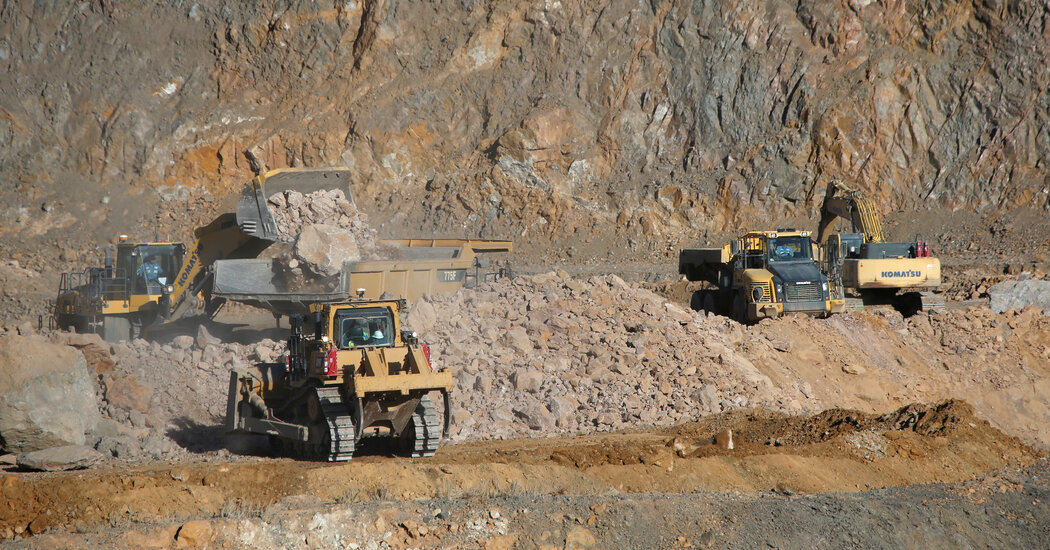WASHINGTON — President Biden took steps Thursday to try to increase domestic production of essential minerals needed for advanced technologies such as electric vehicles, in an effort to reduce America’s reliance on foreign suppliers.
Mr. Biden invoked the Defense Production Act, a measure that expands the government’s ability to support the extraction, processing and recycling of critical minerals such as lithium, nickel, cobalt, graphite and manganese. Those rare materials are used to make high-capacity batteries for electric cars and clean energy storage systems. Yet, aside from a handful of mines and facilities, they are produced almost exclusively outside the United States.
“We must end our long-standing reliance on China and other countries for inputs that will power the future,” Mr Biden said during remarks at the White House, where he also announced the release of 1 million barrels of oil per day. of the Strategic Petroleum Reserve.
The Defense Production Act is a Cold War statute that gives the president access to funding and other enhanced powers to strengthen the U.S. industrial base and ensure that the private sector has the resources necessary to defend national security and deal with emergencies. to cope.
In lieu of loans or outright purchase of materials, the government will allocate more money to feasibility studies and to modernize or increase production in domestic mines for lithium, nickel, cobalt, graphite and other so-called rare earth minerals, a person familiar with the case, although it will not circumvent, replace or expedite any permitting or environmental assessment procedures.
According to a White House announcement on Thursday, the administration will also assess possible further applications of the law related to the energy sector.
The United States imported more than half of its supply of at least 46 minerals in 2020, and all of its supply of 17, according to the US Geological Survey. Many of the materials come from China, which is the world leader in lithium-ion battery production and known to cut exports of certain products during times of political tension, including rare earth minerals.
The Biden administration has warned that a reliance on foreign materials poses a threat to US security and pledged to expand domestic stockpiles of semiconductors, batteries and pharmaceuticals, among others. Although the United States has some untapped deposits of nickel, cobalt, and other crucial minerals, mines and processing sites can take many years to develop.
But bipartisan support for expanding U.S. mining and processing of battery components has increased in recent years. In a March 11 letter to Biden, senators including Lisa Murkowski, an Alaska Republican, and Joe Manchin III, a West Virginia Democrat, proposed invoking the Defense Production Act to stop domestic production of lithium-ion components. accelerate ion battery materials. , in particular graphite, manganese, cobalt, nickel and lithium.
Todd M. Malan, head of climate strategy for Talon Metals, which is developing a nickel mine in Minnesota, said Washington had reached a bipartisan consensus on providing more support for domestic mineral extraction for electric vehicles “driven by dependency concerns.” from Russia and China for battery materials and the need for the energy transition.”
But some domestic developments may face opposition from environmentalists in Mr Biden’s own party.
Representative Raúl M. Grijalva, an Arizona Democrat who chairs the Committee on Natural Resources, said in a statement Wednesday that mining companies “made opportunistic advocacy efforts to advance a decades-old mining agenda that releases polluters and lets Americans bear the consequences.” . †
“Fast-tracking mining under outdated standards that endangers our public health, wilderness and sacred sites from permanent damage is simply not the answer,” he added.

